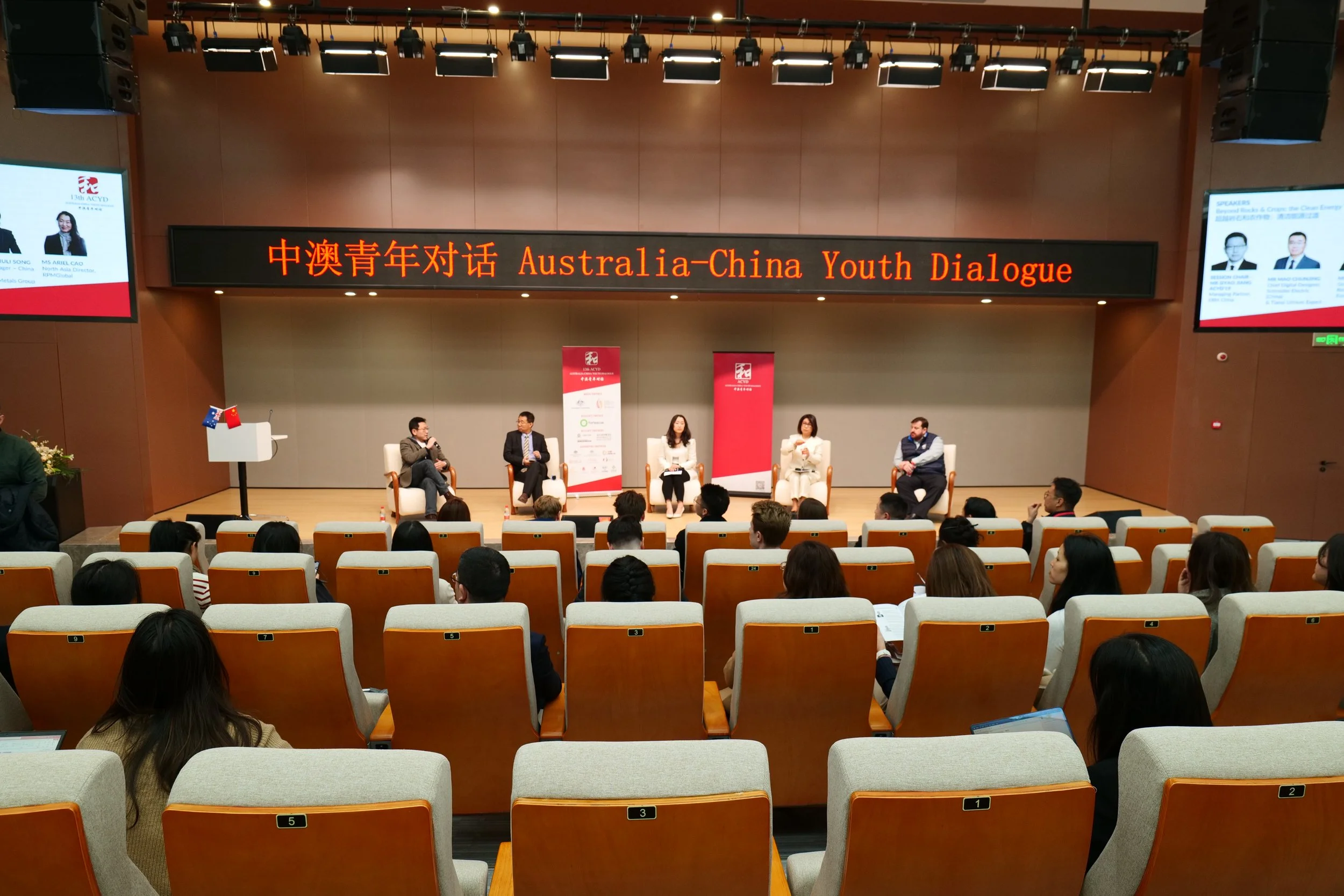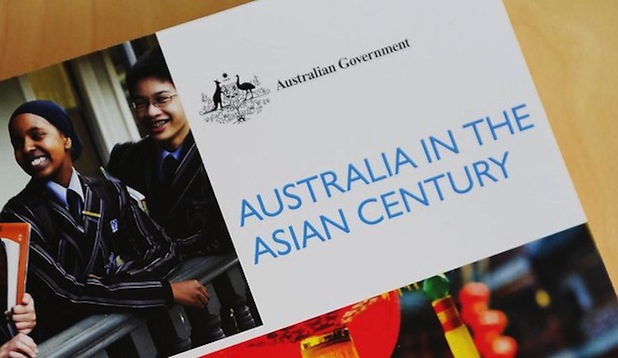Kevin Rudd's speech to the Lowy Institute yesterday underscored the value of deepening Australia's engagement with Asia. It's a message the next Australian government - whether Coalition or ALP - needs to take seriously, argues Neil Thomas. At the Lowy Institute in Sydney yesterday Prime Minister Kevin Rudd delivered the first significantspeech of the election campaign about Australia's international relations.
Most coverage of the speech centred on controversial plans to move naval assets from Sydney to Brisbane and possible humanitarian intervention in Syria.
Much less reported, though possibly of more long-term significance, was Rudd's vision of Australia as an activist regional and global middle power. He emphasised that "we are now living in the Asian century, this is no longer a prospect, this is a reality".
There is now bipartisan acknowledgment that Australia is increasingly economically, diplomatically, and strategically reliant on Asia, and China in particular.
But according to Rudd, shifting Chinese growth patterns mean "Australia's prosperity is simply no longer assured on the back of the China mining boom alone...To ensure future prosperity we must diversify our economy”, he said, by exporting agriculture and professional services to rapidly-growing Asian consumer populations.
However, for Australia to negotiate fierce global competition and position itself successfully in Asia will "require investment, education, training, and systemic not episodic engagement by governments".
To this end, Rudd endorsed the Australia in the Asian Century White Paper as "the most comprehensive review of Australia's regional engagement strategy for 20 years", asserting that to become prosperous Australia must become "comprehensively Asia-literate".
Rudd's speech yesterday was the first significant mention of Asia-literacy or the White Paper during this election campaign.
When then-PM Julia Gillard unveiled the White Paper in October 2012, she hailed it as a flagship "road map for national success".
It boldly recommended that Australian schoolchildren be offered continuous education in one of four priority Asian languages – Mandarin, Hindi, Japanese, and Indonesian – and proposed aspirational targets for a third of business directors and senior public servants to possess "deep experience in and knowledge of Asia" by 2025.
Rudd has benefited from extensive Chinese language and Asian studies education and as a backbencherendorsed it as "a wake-up call for all Australians".
But the ALP has yet to place significant political capital or funding behind actually implementing the White Paper's proposal to reverse Australian mono-lingualism and revolutionise Asian language education.
Rudd's speech was stirring stuff, but it contained too much rhetoric and not enough concrete proposals.
Given such issues scarcely register in marginal-electorate calculations, perhaps it was a final ambassadorial flourish before being voted out of office?
The fate of the White Paper under a Coalition government is uncertain.
Encouragingly, the Coalition has declared a target to have 40 per cent of school graduates speaking a foreign language within a decade.
But Tony Abbott’s reaction to the White Paper's call for a more Asia-literate nation echoed John Howard'srefusal to engage with Australian cultural identity beyond the Anglosphere when he commented that "the best guarantee of Australian participation in the Asian century is a strong economy".
Julie Bishop has also echoed such sentiment during this election campaign, confirming the Coalition would pursue a narrow vision of "economic diplomacy" focused upon business and trade.
But is Asia-literacy even important for Australia's national future?
Pundits argue that Australia is doing well and does not need to be Asia-literate (or anywhere-literate) because "money talks in any language".
But such views exemplify the present complacency of an Australia that has not experienced recession for two decades, which has not prepared itself well for the future and the necessary structural adjustment to our educational institutions and socio-economic systems in order to thrive in the Asian Century.
Understanding the cultures and speaking the languages of Asia is key to ensuring Australia's long-term economic success, as business would flourish with amplified people-to-people engagement, intergovernmental trust, and strategic involvement in the region.
This is especially so within the dynamic non-primary sectors Australia needs to develop, where success is based far more upon networks and interactions than mineral deposits.
To be fair, firm political commitments have been made to Asia-literacy at the tertiary level.
The ALP's Asiabound scheme will provide $10.6m for 3700 Australians to study in Asia.
The Coalition's New Colombo Plan goes further by supporting mass tertiary programs and internship placements, proposing to make Asia study "the norm".
But presence alone does not guarantee meaningful engagement, and most participants will still learn and live in English.
A better way to promote tertiary study in and of Asia would be to teach Australians an Asian language throughout primary and secondary school, so that they are interested and equipped for immersing themselves in an Asian society when they start university.
But, for instance, only five per cent of Australian schools currently teach Chinese.
Implementing the visionary language education recommendations of the White Paper, accompanied by the new national curriculum, reversal of tertiary funding cuts, expanded language-teaching, skilled migration, and support for cross-cultural youth organisations, would unlock myriad national, social, and frankly human benefits that spring from fluency in other languages and cultures.
Australian engagement with Asia would be welcomed and reciprocated by the polities and publics of countries where attitudes towards Australia tend to be deservedly coloured by indifference at its perceived irrelevance or perhaps of cultural xenophobia (that focused animosity towards asylum seekers does not help to quell).
So hopefully the party that takes office on September 7 will defy the initial predictions of many commentators: that the will and funding to realise the White Paper's vision for an Asia-literate Australian population will not materialise.
Australia has a unique opportunity to become a geographically close, economically important, and culturally competent Western country in Asia. This promise could be squandered by a failure to invest in Asia-literate human capital.
This article was first published on the 28th of August 2013 in 'The Drum': http://www.abc.net.au/news/2013-08-28/thomas-asian-white-paper-or-white-elephant/4917896








